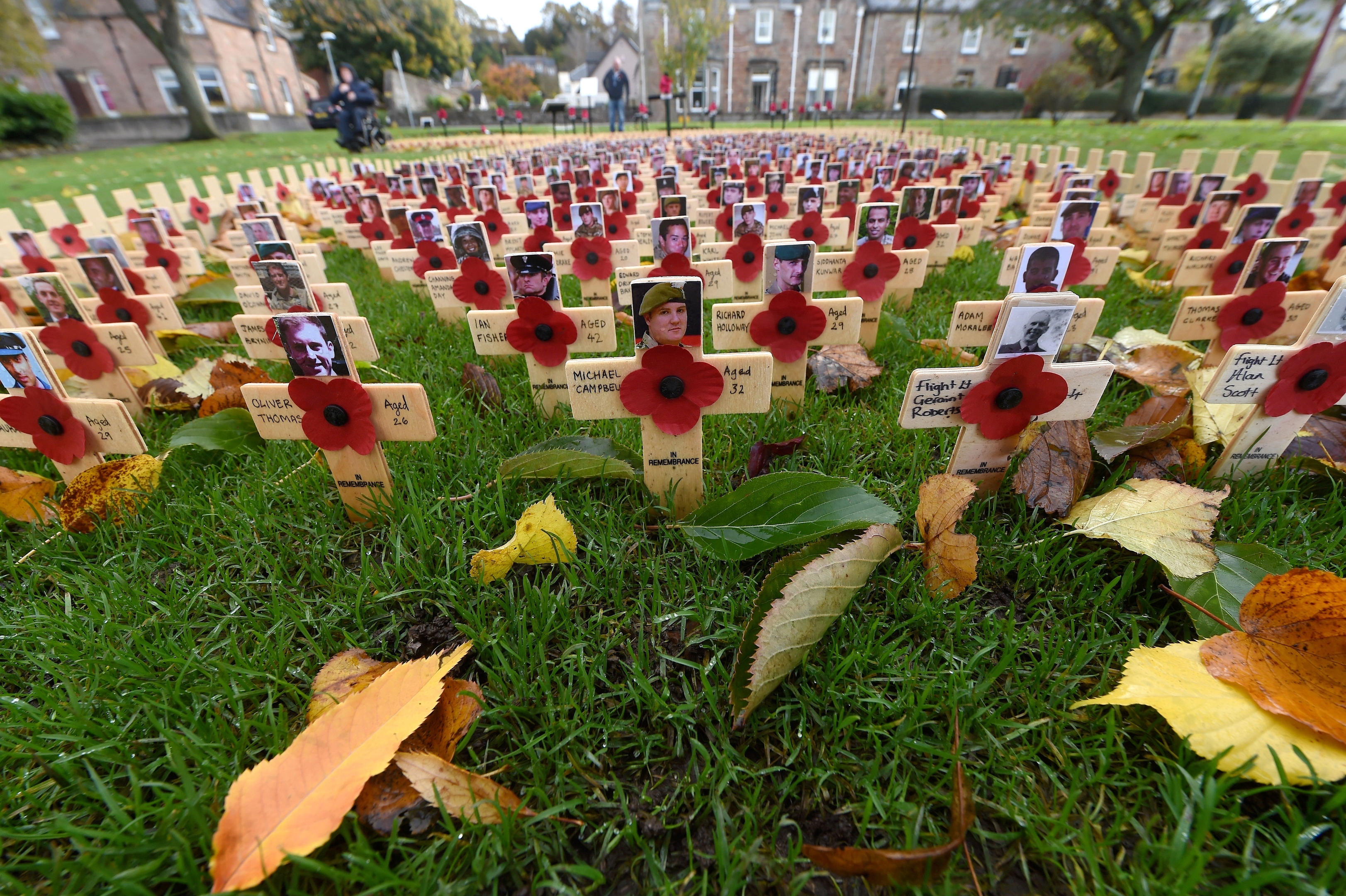Would you be willing to give up your work, your home comforts, seeing family and friends, having a ‘normal’ life, in order to kill others or to be killed yourself?
To be completely honest I cannot begin to imagine having to make that choice.
A century later, we live in a very different world where people’s thoughts and expectations, their values too, are worlds apart from the thoughts and expectations of those around in 1918.
Just as an example, think of people’s sense of duty.
I am not at all sure that these days it is as strong as it once was.
At least, I am not sure people’s sense of duty towards the state and the nation is as strong as it once was.
There may well be a rise in nationalism across Europe right now, but it is a form of nationalism powered more by negatives than by positives.
What I mean by that is that people appear to be defining themselves by who they are not rather than by who they are.
They are not immigrants from elsewhere or refugees, they are… the real deal.
Those who ‘belong’ where they are.
For me, that brings to mind an advert I saw a few years ago where participants who held strong views of other people from a variety of cultures and backgrounds, were encouraged to take a DNA test.
There was a French woman for example, who really didn’t want anything to do with the UK and a young Icelandic man who was adamant he was 100% Icelandic and a young Middle Eastern woman who really did not like the Turks.
The French woman discovered she was 30% British.
The ‘pure’ Icelandic man, that he was from a whole variety of different European countries from Eastern Europe to the Mediterranean – and the Middle Eastern lady discovered she was, you guessed it, part Turkish.
The message was simple: who we are is complicated.
Most of us are formed from a mix of nationalities because in virtually every nation in the world, since time immemorial, people have moved.
Sometimes for work.
Sometimes due to the pressures of war.
Sometimes for adventure and sometimes to escape.
On top of that, most people these days, wherever they are and whoever they might be, would not be willing to put the national good before their own individual and family safety and future.
That might sound a little selfish but having been in the company of a sociologist recently, apparently that is the journey we are on in the West.
People no longer respond to a sense of duty that comes from beyond themselves.
They (or we) make decisions for ourselves.
Which means that governments and even political parties can no longer rely on people being faithful to their cause.
Neither, it has to be said, can religions.
People nowadays will make up their own minds about what they will or will not do and believe.
A century on, I am not at all sure we as a nation, could motivate the numbers of people in communities across Scotland, to do what those who have gone before us did.
We simply would not get a whole football team such as Heart of Midlothian or an entire rugby team such as Edinburgh Academy, or Shinty teams in Kingussie and Newtonmore, to sign up to go to war together.
Is that a bad thing?
I am not sure that’s the right question to be asking.
In modern terms, the question is what does each of us do to live both in and at peace – as individuals, as communities and as a nation?
Right now, we are not at war and under no threat to go to war.
If we were, we would have to realise that any war we might end up in would be one that is not won or lost, or will even be fought by, human, physical intervention.
It will be a button pressing exercise.
That means that our involvement is not a matter of deciding whether or not we might don a uniform, it would be about our electing to choose the person or people, who are going to decide our fate for us.
If that is true, then in order to remain faithful to those who had no such choice 100 years ago, we need to make sure first of all that we vote and that we engage with the issues that will shape or inform that vote.
Those who, 100 years ago this year, left their families and homes to try to influence the world for the better, would ask us to do likewise.
For their sakes we cannot say we don’t care about politics and decline to vote.
For their sakes we cannot ignore the consequences of national decisions upon the world as a whole.
For their sakes we have to ensure that no one experiences the loss, the pain, the grief of war.
Thank you to those in past generations who gave of themselves for the sake of future generations.
May we learn to be as generous.
Right Rev Susan Brown is moderator of the General Assembly of the Church of Scotland

